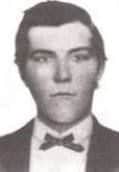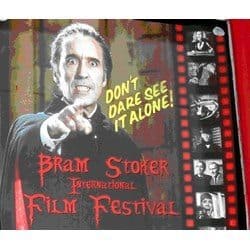Western Gunmen Who Worked as Cowboys
A Cowboy’s Life
The cowboy’s job was to look after the rancher’s cattle, but when a range war started between neighboring factions, the cowboy was expected to fight as a hired gun on behalf of his employer. Some would change sides, bought off by the opposition; others would help pursue wrongdoers as part of a posse or vigilante group.

Western Cowboy Arrival in Dodge City
Western Cowboy Arrival in Dodge City Wall Decor
Butch Cassidy
Born Robert LeRoy Parker in Beaver, Utah on April 13, 1866 Parker grew up on a ranch and spent years as a cowboy, acquiring the nickname ‘Butch’ and subsequently calling himself Cassidy after Mike Cassidy, a cattle rustler he fell in with while in his teens. In 1889, he and others robbed a bank in Colorado, and the following year, he bought a ranch just across the state line from the ‘Hole in the Wall’ a natural geological fault which became a hideout for the Hole-in-the-Wall Gang and the Wild Bunch. A series of bank and train robberies with members of both gangs had Pinkerton detectives and other lawmen trailing them. Cassidy and the Sundance Kid (Longabaugh) fled to South America after attempts to obtain an amnesty from the railroads they had robbed all failed. They escaped to Chile, crossing in to Argentina to rob banks, and returning back over the border to Chile. Nothing is known of Parker after 1907. 1n 1908, two masked American robbers robbed a mining company payroll in San Vicente, Bolivia and the evidence led the Bolivian Army to a lodging house. After the ensuing gunfight, both robbers were dead, but they could not be identified. Both were buried in a local cemetary. Despite DNA tests in 1991, no match to living relatives was made, so the bodies were unlikely to belong to Parker or Longabaugh; many unproven accounts have been given of Parker being seen in the US as late as 1938.

The Last Outlaws: The Lives and Legends of Butch Cassidy and the Sundance Kid
The Last Outlaws: The Lives and Legends of Butch Cassidy and the Sundance Kid
Butch Cassidy and the Outlaw Trail
Butch Cassidy and the Outlaw Trail
Sundance Kid
Real name Harry Alonzo Longabaugh, born in Mont Clare, Pennsylvania, in 1867. Longabaugh worked for years as a ranch hand; in Wyoming he was jailed for stealing from a ranch, on release he worked on a ranch in Alberta Canada. In 1892, he was suspected of robbing a train along with others; by 1897 he was part of the Wild Bunch, along with Robert LeRoy Parker, known as Butch Cassidy. Although he wounded two men in a gunfight, he was not known to have killed anyone. Other members of the Wild Bunch, and the Hole-in-the-Wall Gang certainly did. Longabaugh and Parker left the US for Argentina in 1901, along with Etta Place, Longabaugh’s mistress; she returned a few years later. Longabaugh was thought to have died with Cassidy in Bolivia, but lack of DNA evidence suggests the Americans shot by the authorities after a payroll robbery were not the two famous outlaws. Anecdotal evidence suggests Longabaugh also returned to the US after the supposed date of death.

The Lives and Legacies of the Wild West’s Famous Outlaw Duo
Butch Cassidy & The Sundance Kid: The Lives and Legacies of the Wild West’s Famous Outlaw Duo
Digging up Butch and Sundance
Digging up Butch and Sundance (Second Edition) [Paperback]

Billy the Kid
B
orn William Henry McCarty around 1860-1862, possibly in New York City. Used the aliases William Antrim, William H Bonney. McCarty was a teenage itinerant ranch hand in Arizona. His first killing on August 18, 1877, was that of Frank “Windy” Cahill, a long-time bully who suddenly sat on Billy and punched him repeatedly. The Kid shot him and fled Arizona for New Mexico, calling himself William H Bonney. He joined cattle rustlers known as the Jesse Evans Gang until they fell out and he went back to ranching. Late in 1877, McCarty, along with others, was hired to guard cattle guard by a cattle rancher, John Tunstall. A conflict now called the Lincoln County War erupted between the town merchants, Lawrence Murphy and James Dolan, and Tunstall and his partner, Alexander McSween. On February 18, 1878, Tunstall was murdered by William Morton, Jesse Evans, Tom Hill, and Frank Baker, members of the Murphy-Dolan faction. Tunstall’s men formed a group called the Regulators who pursued the murderers and killed some, while McSween tried to have them arrested legally. Mixed allegances, treachery, killings and personal grudges, plus political corruption meant that one by one, the Regulators found themselves in opposition to the law. A fire at McSween’s home resulted in McSween’s death and forced McCarty to flee to Texas. In Autumn of 1878, the new Governor of New Mexico, Lew Wallace, offered an amnesty for any man involved in the Lincoln County War who was not under indictment. McCarty was, but wrote to Wallace to ask for immunity in return for testimony to the Grand Jury. In March 1879, Wallace and McCarty met and McCarty agreed to a short stay in jail while he testified. Although John Dolan was indicted for murdering Tunstall, the district attorney ignored Wallace’s promise and refused to free McCarty, so McCarty broke jail. In January 1880, McCarty killed Joe Grant. Grant boasted to another poker player that he would kill Billy the Kid. The poker player was McCarty. The Kid requested a closer look at Grant’s ivory handled revolver and rotated the cylinder, ensuring that that the hammer fell on an empty chamber when the trigger was pulled. On revealing his identity to Grant, the man fired as expected, with no result, whereupon McCarty shot him dead. By now, a newly-elected Sheriff, Pat Garrett was in pursuit with a posse. On December 19, McCarty escaped one ambush. On December 23, Garrett’s posse surrounded McCarty and other ex-Regulators in a hut at Stinking Springs. Charlie Bowdre was shot in mistake for McCarty. Starving, the outlaws agreed to surrender. McCarty was convicted and sentenced to hang on May 13, 1881 but managed to kill both guards and escape yet again. Finally, three months later, Garrett tracked him down to Fort Sumner and the home of Pete Maxwell, a friend of Billy’s. Unexpectedly, Billy walked in and Garrett shot him dead on July 14, 1881.
Billy the Kid: A Short and Violent Life
Billy the Kid: A Short and Violent Life
American Experience: Billy the Kid
American Experience: Billy the Kid
Charlie Siringo
Born Charles Angelo Siringo, Matagordo County, Texas on February 7, 1855. Charlie Siringo was a cowboy in early life, driving cattle along the Chisholm Trail. He married, became a storekeeper for a few years, then began writing books about the west and the characters he’d known. In 1886 he joined the Pinkerton National Detective Agency. For about 20 years, Siringo worked undercover, pretending to be many characters in order to mix with various outlaws and thieves. Among those he chased and infiltrated were bank and train robbers, including Butch Cassidy and murderers such as Billy the Kid. Disillusioned with Pinkerton’s management, Siringo worked for William J. Burns Detective Agency, and in 1922, moved to Hollywood, becoming unofficial consultant to William S. Hart in his cowboy movies. Siringo died in Altadena, California on October 18, 1928.

A Cowboy Detective
A Cowboy Detective: A True Story of Twenty-two Years with a World-Famous Detective Agency
Charlie Siringo’s West: An Interpretive Biography
Charlie Siringo’s West: An Interpretive Biography

Frank M Canton
Born Josiah W Horner in Virginia on September 15, 1849.
Horner was a working cowboy until 1871, when he became a bank robber and cattle rustler. On October 10, 1874, Horner got into a an arguement with two black soldiers over a remark made. A gunfight ensued, ending with his killing one of them. Arrested for bank robbery in Texas in 1877, he escaped to Nebraska and went back to cattle herding. He changed his name to Frank M Canton and vowed to put his past behind him.
In 1882, Canton was elected sheriff of Johnson County, Wyoming. In 1885, he became a U.S. Deputy Marshal. Moving to Oklahoma, he became a respected U.S. Marshal under Judge Isaac Parker. Finding Oklahoma becoming too tame, Canton traveled to Alaska in 1897 and spent ten years as a Deputy U.S. Marshal. In 1907, he returned to the US and became Adjutant General for the Oklahoma National Guard. He then decided to confess his past identity. At a meeting with the Governor of Texas, Canton revealed his real identity and past crimes; the governor granted him a pardon because of his law enforcement service.
Canton died on September 27, 1927, in Edmond, Oklahoma.

Alias Frank Canton
Frank Canton Giclee Print

Frank Canton Giclee Print by . Product size approximately 18 x 24 inches. Available at Art.com. Embrace your Space – your source for high quality fine art posters and prints.
The End of the Wild West
Down From the High Country
Down From the High Country – Western Painting by Peter McIntyre
Western Cowboy Riders Print
Western Cowboy Riders Wild West Landscape Art Print
Split Decision

Split Decision – Tom Ryan Split Decision – Art Print
Western Landscape

Western Landscape
Jack Sorenson Western Landscape – Art Print



















